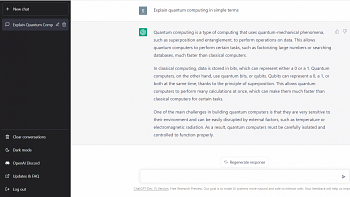Redefining legal research with ChatGPT

With the rise of ChatGPT, a cutting-edge artificial intelligence (AI) technology that could alter how legal research is done, the legal regime is witnessing a shift. The language model ChatGPT, created by OpenAI, is trained on enormous volumes of legal data and legislation, making it a useful tool for legal researchers and practitioners.
Legal research is a laborious, time-consuming activity that frequently involves hours of searching through multiple sources of data. Legal professionals can quickly and accurately retrieve information using ChatGPT, which streamlines the process and saves them time and effort. The tool's case summaries, pertinent legal clauses, and citators can help in case law research. Additionally, ChatGPT can help with legal writing by supplying pertinent wording and phrasing, which makes it simpler for legal experts to prepare contracts, pleadings, and other legal documents.
By highlighting the potential warning signs and areas of concern, ChatGPT can accelerate the contract review procedure. This might make the review process more accurate and efficient, which would benefit clients. Additionally, ChatGPT can respond to frequently requested legal questions, giving researchers and practitioners of law speedy and precise responses.
On January 10, a panel discussion on the reliability and long-term effects of ChatGPT's AI in the legal regime was held by the Northwestern Law and Technology Initiative. One of the panel members was John Oldham McGinnis, who is a professor at Northwestern University Pritzker School of Law. According to him, AI tools won't render lawyers superfluous anytime soon; rather, they'll be crucial assistants just like e-discovery and computerised legal search. McGinnis added, how legal practitioners and law students will offer value in a future where some of the simpler activities are going to be carried out by computers is the question that they must now confront.
It's crucial to understand that ChatGPT's data might not always be correct or current and shouldn't be used as a substitute for qualified legal counsel. When conducting research and practising law, legal practitioners must still use their own judgement and critical thinking abilities. The panel of Northwestern Law and Technology Initiative agreed that ChatGPT variants will focus on specialised domains in the next five to 10 years, including LawGPT, MedicineGPT, and MarketingGPT, which will focus on the need to assess, validate, and test the bot's output.
By enhancing the effectiveness and precision of legal research and writing, ChatGPT has the potential to revolutionise the legal sphere. Its debut can be a game-changer for legal experts and is certain to have a big impact on how legal work is done in the future.
Shadab Bin Ashraf is a Lecturer in Law at Bangladesh Army International University of Science and Technology (BAIUST).

 For all latest news, follow The Daily Star's Google News channel.
For all latest news, follow The Daily Star's Google News channel. 










Comments